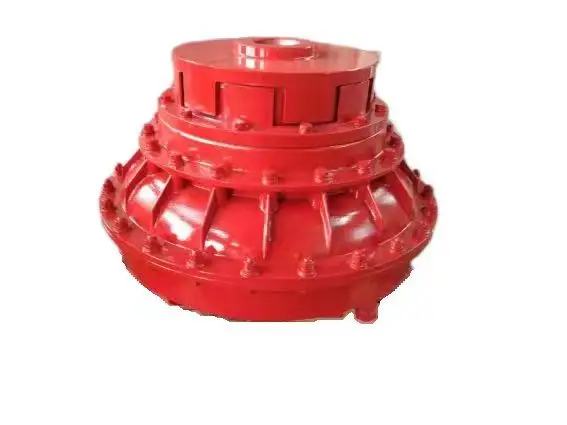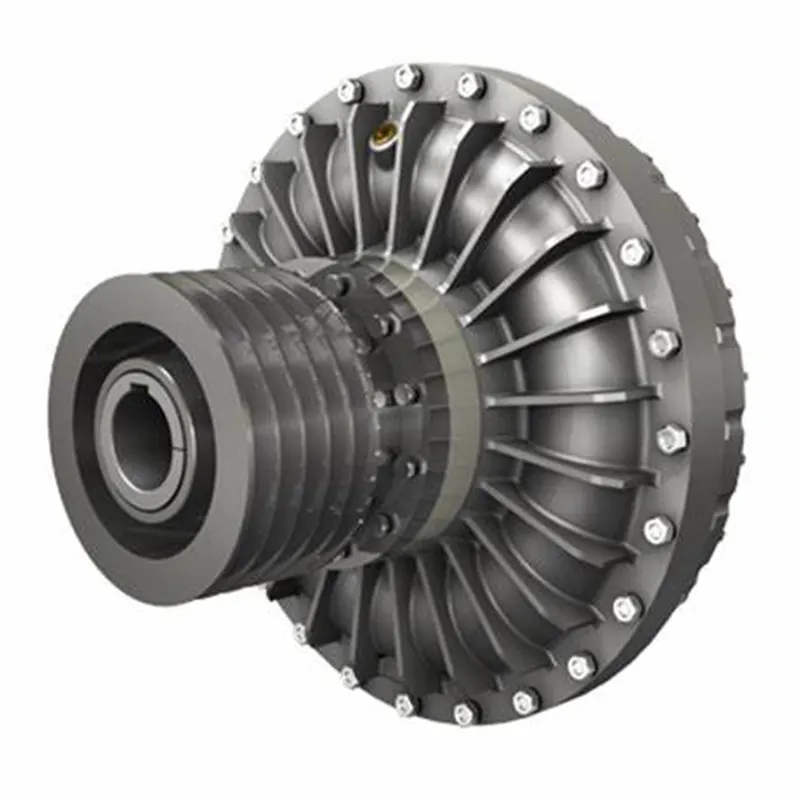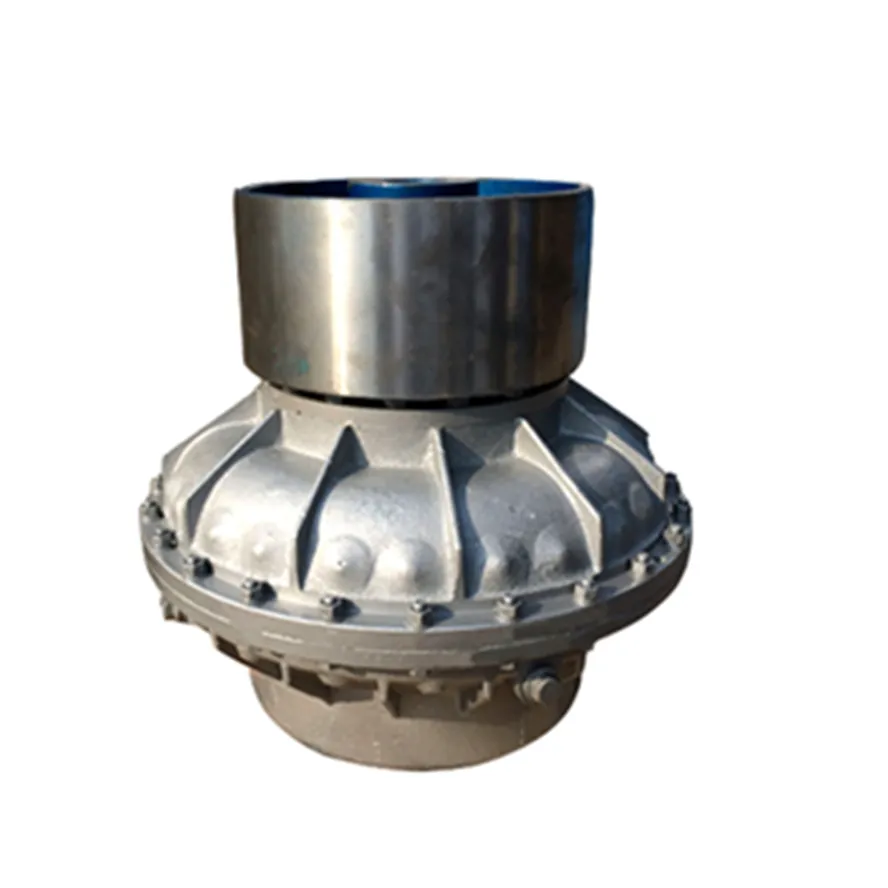Product Description
Product Description
Factory Casting UL/FM Ductile Iron Grooved Mechanical Flexible/Rigid Coupling
Ductile iron grooved pipe fittings and couplings (FM and UL approved) mainly including 2 kinds of grooved products:
(1) the pipe fittings function on connecting and sealing such as rigid coupling, flexible coupling, mechanical tee and grooved flange,
(2) the pipe fittings function on connecting and transition such as bend, tee, cross, reducer.
Specification
| Name | Rigid coupling, Flexible coupling, 90° Elbow, 45° Elbow, 22.5° Elbow, 11.25° Elbow, Split Flange, Adaptor Flange, Cap | |
| Tee, Reducing Tee(Grooved/Threaded), Mechnical Tee(Grooved/Threaded), U-bolted Mechnical Tee | ||
| Cross, Reducing Cross(Grooved/Threaded), Mechnical Cross(Grooved/Threaded) | ||
| Reducer(Grooved/Threaded), Grooved Eccentric Reducer | ||
| H.S. CODE | 735710000 | |
| Technology | Casting | |
| Connections | Grooved-Thread End, Grooved End | |
| Pressure Rate | 300PSI / 2.07MPa | |
| Size | 1” – 12” | |
| Pipe O.D. | 33.7MM – 323.9MM | |
| Surface Finish | Epoxy Powder,Painting,Galvanization,Dacromet (in Red/Orange/Blue/White Color) | |
| Design Standard | American Standard | ANSI/ASTM |
| European Standard | EN | |
| British Standard | BS | |
| Germany Standard | DIN | |
| Japanese Standard | JIS | |
| ISO Standard | ISO | |
| Thread Standard | ASME B.1.20.1 / EN15716 / DIN2999 / ISO7-1 / ISO228 / IS554 / BS EN15716 / BS 21.173 | |
| Material Standard | Ductile Iron confirms to ASTM A-536 Gr65-45-12,EN1563,JIS G5502,QT450-12 | |
| Gasket Material | EPDM,NBR or Silicon Rubber | |
| Bolts & Nuts | ISO 898-1class 8.8 | |
| Flanges Standard | PN series or Class series | |
| Packages | Plywood Cases or Plywood Pallets or Boxes | |
| Application | Fire Fighting System,Petrochemical & Gas Industry,Chemical,Machinery,Electric Power,Construction Water Works,Valve Industry,etc. | |
| Advantages | High Quality + Ready Stock + Faster Delivery + Customized | |
| Brand | LMP | |
| Certificate | ISO9001,API,CE,UL/FM | |
Company Profile
We are a leading manufacturer of pipe fittings and valves establised in 1996
1. We have over 20 years experience in exporting pipeline products.
2. 5 factories,complete 100+ projects every year.
3. Your 1 more good choice for better customer service.
Certifications
FAQ
/* January 22, 2571 19:08:37 */!function(){function s(e,r){var a,o={};try{e&&e.split(“,”).forEach(function(e,t){e&&(a=e.match(/(.*?):(.*)$/))&&1

Protection Against Leaks and Contamination in Oil Couplings
Oil couplings are designed with various features and practices to prevent leaks and contamination, ensuring their reliable operation:
- Sealing Mechanisms: High-quality seals and gaskets are used at critical points to prevent oil leakage and entry of contaminants.
- Seal Maintenance: Regular inspection and replacement of seals and gaskets help maintain their integrity and prevent leaks.
- Enclosures: Some oil couplings are housed within protective enclosures that shield them from external debris, dust, and moisture.
- Oil Filtration: Some systems incorporate oil filtration units to remove contaminants and particles from the oil before it enters the coupling.
- Oil Analysis: Regular oil analysis helps monitor the condition of the lubricant and detect contaminants or degradation early.
- Proper Installation: Precise installation and alignment reduce the risk of seal damage and misalignment-related leaks.
- Clean Environment: Maintaining a clean operating environment minimizes the likelihood of contaminants entering the coupling.
- Oil Reservoir Design: Well-designed reservoirs and chambers within the coupling can prevent oil from escaping and contaminants from entering.
- Seal Design: Advanced seal designs with protective features can provide enhanced resistance to leaks and contamination.
Through these protective measures, oil couplings can effectively safeguard against leaks and contamination, ensuring their continued performance and reliability.

Applications of Oil Couplings in Various Industries
Oil couplings find applications in a wide range of industries where their unique features are advantageous. Some common examples include:
- Marine Industry: Oil couplings are often used in marine propulsion systems to transmit power from engines to propellers. Their ability to handle variable speeds and torque fluctuations makes them suitable for marine vessels.
- Mining and Heavy Machinery: In large mining equipment and heavy machinery, oil couplings can efficiently transfer power between engines and drivetrain components, allowing for smooth operation in challenging conditions.
- Industrial Manufacturing: Oil couplings are used in various manufacturing processes where precise control of speed and torque is essential. Their ability to provide gradual startup and dampening of shock loads is beneficial in these environments.
- Power Generation: Oil couplings are utilized in power generation equipment, such as generators and turbines. They help maintain consistent power output even when load and speed vary.
- Pumping Systems: Oil couplings are employed in pumping systems where variable flow rates and pressure conditions are common. Their adaptability to changing conditions ensures efficient pump operation.
- Construction Equipment: Construction machinery, such as cranes and excavators, can benefit from oil couplings’ ability to handle varying loads and speeds, ensuring safe and controlled operation.
These are just a few examples of the diverse industries where oil couplings play a crucial role in ensuring efficient and reliable power transmission under varying conditions.

Factors to Consider When Selecting an Oil Coupling for an Application
When choosing an oil coupling for a specific application, several crucial factors need to be taken into consideration to ensure optimal performance and reliability:
1. Power and Torque Requirements: Determine the power and torque levels that the coupling needs to transmit. Select a coupling model with appropriate torque and power ratings that match or exceed the application’s requirements.
2. Speed Range: Consider the operational speed range of the machinery. Choose an oil coupling that can effectively operate within the specified speed limits without causing overheating or excessive wear.
3. Load Characteristics: Analyze the nature of the load, whether it’s constant or varying. High shock loads or frequent start-stop cycles may require a coupling with better shock-absorption and overload protection capabilities.
4. Misalignment Tolerance: Assess the potential misalignment between the driving and driven shafts. If there’s a possibility of misalignment, choose an oil coupling that can handle angular, axial, and radial misalignments to prevent premature wear.
5. Environmental Conditions: Consider the operating environment, including temperature, humidity, and exposure to contaminants. Select a coupling with suitable sealing and cooling features to ensure reliable performance in harsh conditions.
6. Maintenance Requirements: Evaluate the maintenance practices required by the coupling. Some oil couplings require periodic oil changes or inspections. Choose a coupling that aligns with your maintenance capabilities and schedule.
7. Space Constraints: Consider the available installation space. Choose a compact oil coupling design that fits within the available space while maintaining the required power transmission capacity.
8. Application Type: Different applications have specific demands. For example, pumps, compressors, and conveyor systems may require different types of oil couplings optimized for their unique characteristics.
9. Cost Considerations: Balance the performance requirements with the available budget. While high-quality couplings may have a higher upfront cost, they can lead to cost savings over the long term due to reduced maintenance and downtime.
10. Manufacturer Reputation: Opt for reputable manufacturers known for producing high-quality and reliable oil couplings. This ensures that you receive a product backed by technical support and warranties.
By carefully considering these factors, you can choose the right oil coupling that meets your application’s specific needs, leading to enhanced performance, efficiency, and longevity.


editor by CX 2024-04-22
by
Leave a Reply